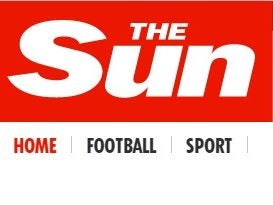
An undercover investigation by The Sun into a man selling health care diplomas to students, which could be used to apply for degree courses, did not breach the Editor’s Code, a regulator has ruled.
The Independent Press Standards Organisation dismissed claims by Halfan Mwembamba, the subject of the investigation, that the newspaper had breached accuracy, privacy, subterfuge and discrimination clauses in the pursuit of the story and its subsequent publication.
The article was published online on 11 January 2016 with the headline: “Sun investigation: £1,000 gets a diploma for bogus student …. who can use it to get degree places or NHS jobs”.
The Sun’s reporter used a hidden camera and microphone to their encounter with Mwembamba. The online version of the article was accompanied by a video including footage of him interacting with the reporter while he was undercover.
Said IPSO’s complaints committee: “The article stated that the reporter had paid £1,000 to Mwembamba, referred to as a ‘fixer’, for a Level 4 diploma in Health and Social Care Management from the British Institute of Resource Development (BIRD).
“It reported that when the reporter had contacted the complainant, he had promised him a diploma by saying he would receive a ‘guaranteed pass, 100 per cent’. It reported that the reporter had asked the complainant ‘I just bring the money and you do the rest for me?’, and that the complainant responded ‘yes, yes’.
“It reported that after paying £1000, the reporter was given the diploma by BIRD ‘despite no experience, no lectures, no coursework or exams’. It reported that the complainant offered a £50 bonus for ‘every new fake student he could bring in’.”
Mwembamba denied all allegations, claiming he was a volunteer at BIRD, and that the reporter’s agreement was with BIRD, rather than with him.
He said he had coached the undercover reporter through an interview as part of the university admissions process.
He said university staff only checked applicants’ documentation, and that there was no interview with the university, meaning it did not make sense for him to have coached the reporter through an interview.
Mewmbamba said that he was acting on instructions from BIRD when he told the reporter he could get a bonus of £50 for bringing in a qualified student; he denied that he had offered this bonus for bringing in “fake students”.
He claimed the information sought by the paper could have been gained through means other than subterfuge.
He also said the video did not show or name any individuals from the university and that this was because he was black and they were white, claiming the newspaper had discriminated against him because of his race.
IPSO found in favour of the News UK-owned newspaper on all alleged clause breaches.
“The investigation had demonstrated that the allegation was true; it was possible, via the complainant, to obtain diplomas from BIRD without having to study or take any assignments. The public interest which justified the undercover investigation also justified publication of the material obtained,” said the complaints committee.
“There was a public interest in illustrating how the complainant had obtained the diploma by publishing the audio recording and the video footage obtained by a hidden camera, which identified the complainant on account of his central role in obtaining the diploma.”
Email pged@pressgazette.co.uk to point out mistakes, provide story tips or send in a letter for publication on our "Letters Page" blog
